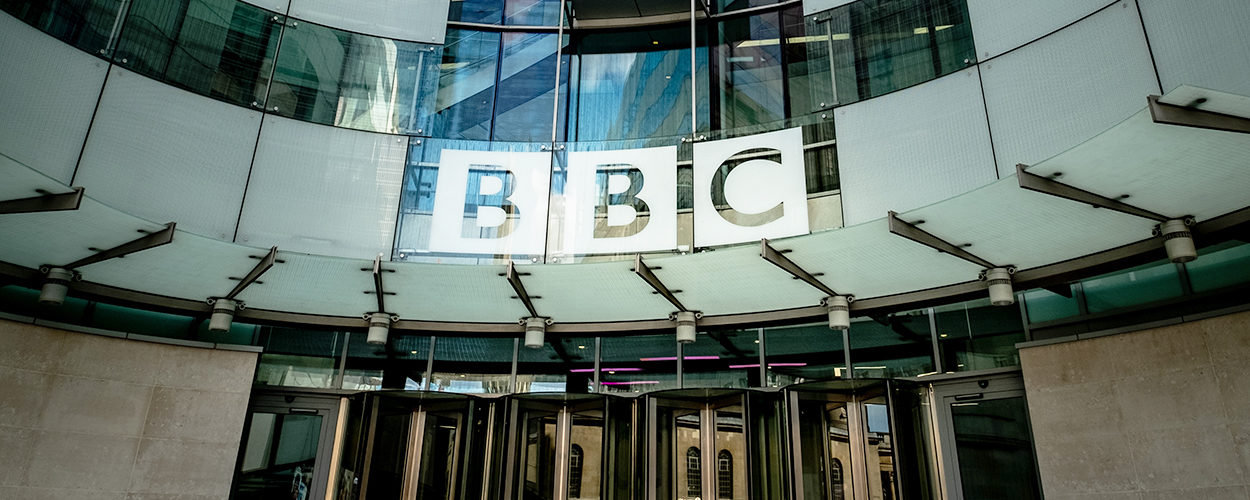This website uses cookies so that we can provide you with the best user experience possible. Cookie information is stored in your browser and performs functions such as recognising you when you return to our website and helping our team to understand which sections of the website you find most interesting and useful.
Business News Media
BBC proposal would see radio programmes like Desert Island Discs produced by its commercial wing
By Chris Cooke | Published on Wednesday 24 May 2023

The BBC has announced a proposed rejig of its audio production operations. It will see various speech-based programmes that air on the Beeb’s radio stations produced by its commercial wing BBC Studios rather than by teams within the broadcaster’s in-house content division.
It’s part of plans to grow the audio output of BBC Studios, which – unlike the BBC proper – is able to compete for commissions from other broadcasters and platforms, and also seek commercial opportunities around content beyond the UK. The BBC believes that the growing popularity of podcasts presents numerous opportunities that its commercial wing should explore.
“The growth in the global podcast market is opening up creative opportunities in factual, entertainment and drama”, the BBC said in a statement yesterday. “To respond to this, we will look to build on BBC Studios’ existing, successful audio production unit to succeed both in the UK and internationally”.
“We propose to move timeless network radio content over to BBC Studios that is made for audiences in the UK, but also has global appeal”, it added, “including a range of entertainment and conversation programmes – eg ‘Desert Island Discs’, ‘In Our Time’ and ‘The Life Scientific’ – as well as drama and documentaries, which we can see creative opportunities for”.
“This proposed transfer”, it explained, “will create a thriving multi-genre audio operation in BBC Studios that can continue to make high quality programming for BBC audiences, as well as realise more of the opportunities provided by the global audio market – for example securing more commissions and identifying more collaboration and funding opportunities to scale up ideas and productions across TV, audio and digital”.
Commenting on the proposal, BBC Studios boss Tom Fussell said: “There’s real international appetite for content that is rooted in the BBC’s public service values and we’re excited by the prospect of growing our team and supporting their creative ambitions. We already deliver world class content to everyone from Radio 4 and BBC Sounds to Audible and Spotify and want to invest in more British audio IP”.
AudioUK – which represents independent radio and audio production companies – has responded to the announcement by calling on the BBC to allow independent producers to compete with its in-house teams for the opportunity to make more of broadcaster’s own speech-based radio content. Such a move is necessary, it argues, if BBC Studios intends to actively compete for opportunities outside of the BBC’s stations and platforms.
The trade group notes that “previously, when the BBC moved its TV production to BBC Studios, enabling it to compete against independent creative TV producers to make programmes for other broadcasters, the government in return required that the BBC open up 100% of its TV commissioning to external competition”.
Under the Royal Charter that sets out various obligations that the BBC must meet in return for receiving its licence fee funding, the broadcaster is required to make 60% of ‘relevant hours’ in its network radio commissions open to external competition.
The BBC has voluntarily applied that requirement to its BBC Sounds platform too, which was set up after the current Charter came into force. And it has also committed to ensure that 100% of new speech commissions are competitively allocated to production teams. However, AudioUK stresses, “there remain many long-running BBC programmes which do not have any creative competition”.
Says AudioUK MD Chloe Straw: “The BBC’s decision to move some speech audio production teams into BBC Studios represent a step change in its approach, with it moving production capacity to provide further competition to the independent sector. As most independent audio production businesses specialise in entertainment, factual and drama, they will now face additional competition from the BBC in the wider market”.
“The BBC has assured us that it is committed to continuing to make 60% of all non-news network radio open to competition and it has also assured us that 100% of new speech commissions will be competed for”, she adds, “however there remain large parts of BBC radio and audio commissioning which are not open to competition from indie producers”.
“This means there needs to be a market correction”, she goes on, “in terms of a further increase to competition for independent producers to make BBC radio and audio programmes, not just in speech but across all the BBC’s radio and audio output. We look forward to working with the BBC to ensure that the licence fee paying audience are benefiting from the widest range of creative ideas”.
The BBC’s proposals are still subject to regulatory approval, but the broadcaster hopes to implement the changes in April next year.





